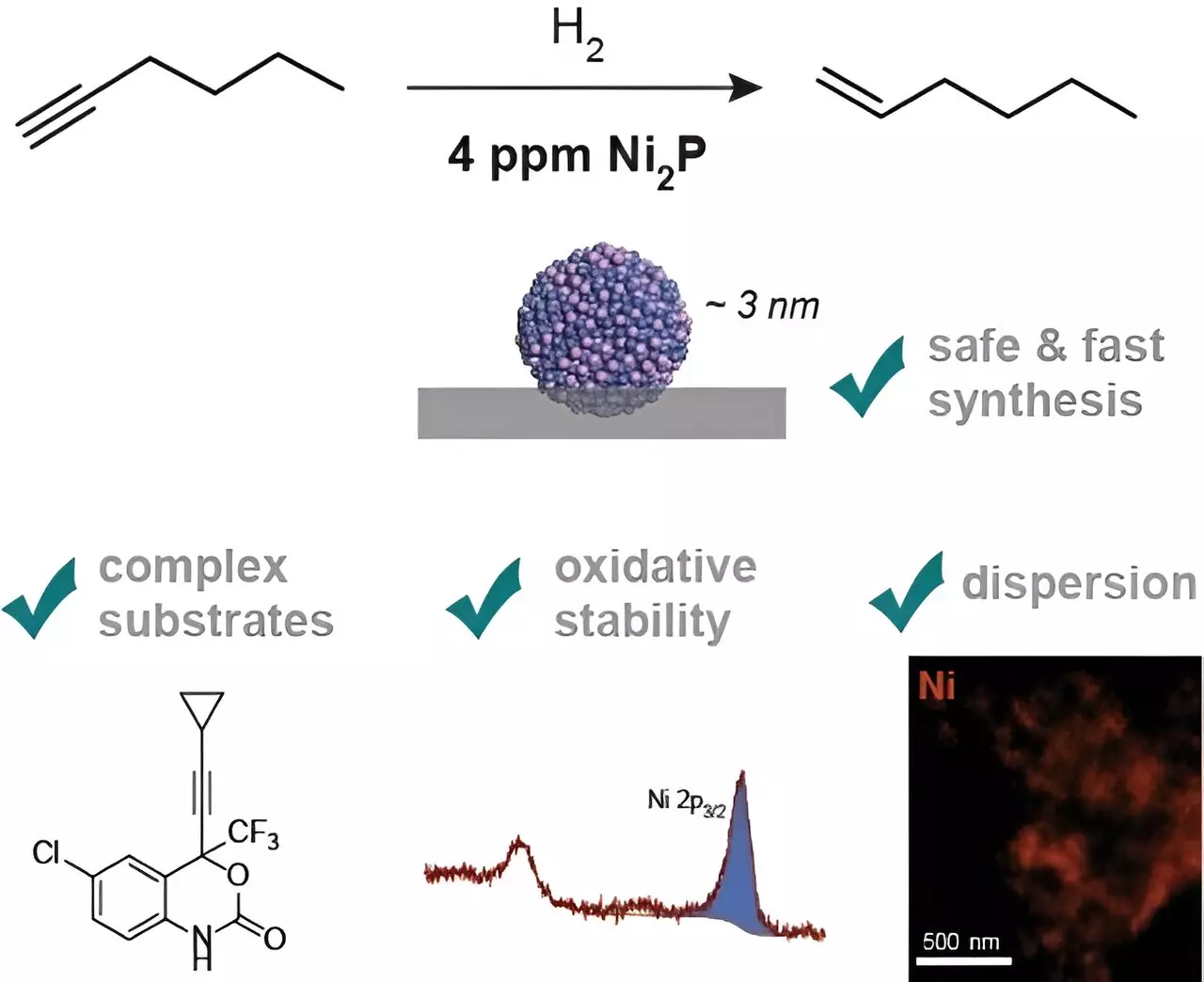Transition metal phosphides have long been considered as a potential alternative to noble metal catalysts due to their cost-effective nature and abundant availability. However, the synthesis of these catalysts has always posed challenges, particularly in terms of surface oxidation and production requirements. Dr. Constanze Neumann, along with her team at the Max-Planck-Institut für Kohlenforschung, has made significant progress in addressing these issues.
Dr. Neumann and her team have developed a groundbreaking single-step procedure that utilizes safe and inexpensive materials to synthesize an air-stable, nickel-containing catalyst. By incorporating the right surface ligands, the researchers were able to achieve a high dispersion of the catalyst on a carrier surface, ensuring optimal distribution for the desired reaction. This innovative approach eliminates the need for high temperatures or toxic starting materials, making the synthesis process more efficient and environmentally friendly.
One of the key advantages of this catalyst is its remarkable stability, even after being stored under air for an extended period. Unlike traditional phosphides that require specialized handling in a glovebox, the catalyst developed by Dr. Neumann’s team can be safely used in a regular fume hood. This improved stability not only simplifies storage and handling but also contributes to the overall cost-effectiveness of the catalyst.
While the current success of the catalyst is significant, Dr. Neumann and her team are already looking ahead to further advancements. Their goal is to enhance the reusability of the catalyst and eliminate the need for solvents in the production process. By continuously improving the performance and efficiency of transition metal phosphides, the researchers aim to revolutionize the field of catalysis and provide novel solutions for a wide range of industrial applications.
The development of an innovative and versatile catalyst based on transition metal phosphides represents a significant step forward in the realm of catalysis. Dr. Neumann’s pioneering research has not only addressed existing challenges in catalyst synthesis but has also demonstrated the potential for these materials to outperform conventional noble metal catalysts. With ongoing efforts to enhance stability, reusability, and efficiency, transition metal phosphides are poised to play a crucial role in shaping the future of catalysis and driving innovation in various industries.


Leave a Reply